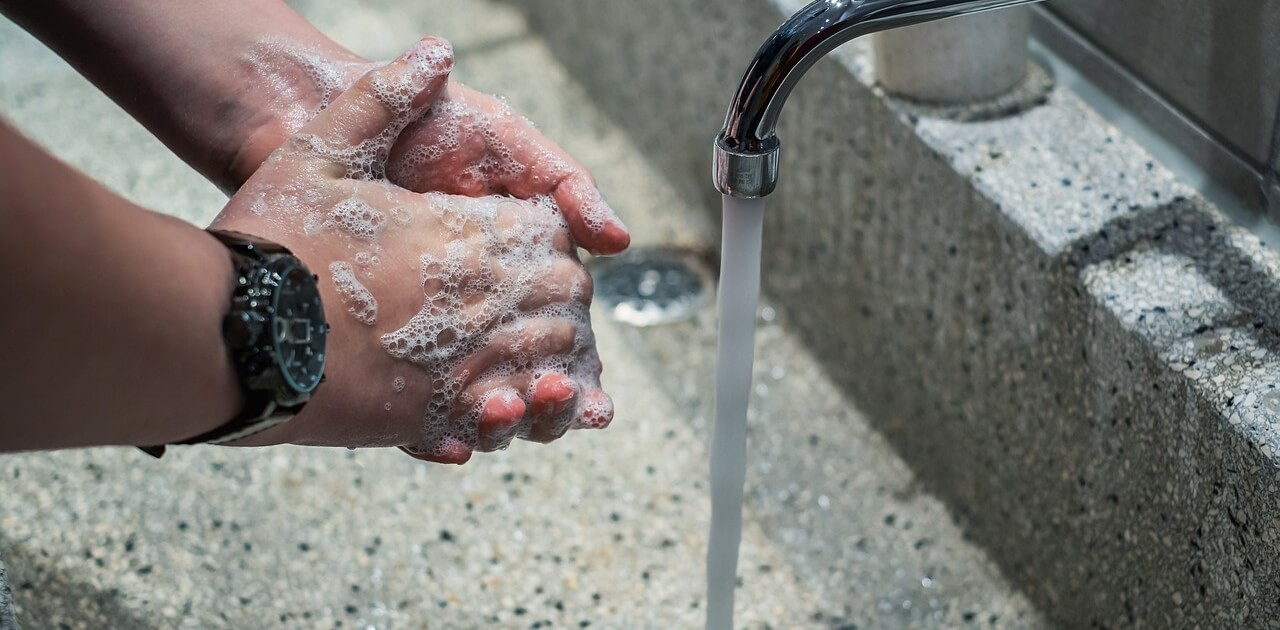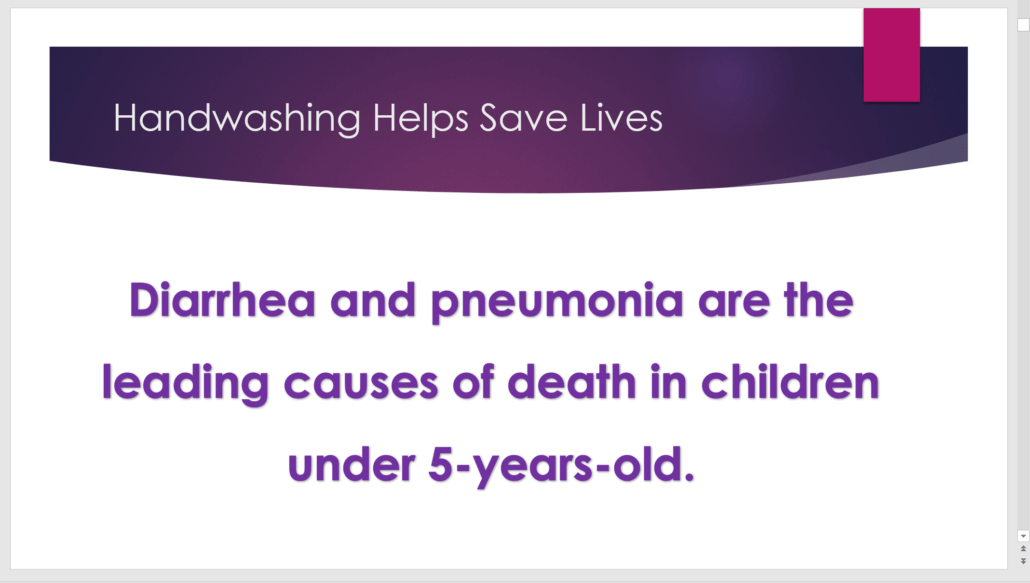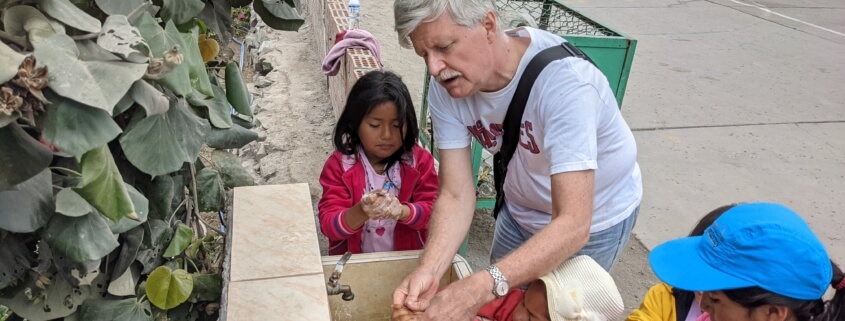Help Improve Health and Hygiene for Peruvian Children
In the dusty hills of the district of Ventanilla, north of Lima, Peru, the community of Sagrada Familia houses and educates some 250 children living away from their families. During the school year, Sagrada Familia also is a school for more than 1,000 kindergarten, primary and secondary school students from the surrounding favelas. Part of Sagrada Familia’s compact campus is a clinic which provides health care services to the resident children, students and neighborhood families. As we introduce the Reaching Children’s Potential Program (RCP) to the wider community of Ventanilla, volunteers are presenting health and hygiene workshops to students and families, emphasizing practical skills in hand washing and disease prevention.
It’s rare in the small, remote jungle villages and Andean regions, where many of Sagrada Familia’s children were born, to find a fully equipped bathroom with running water and soap. So, when they come to live in the children’s community, they must learn the practice of hand washing. For the families living in Ventanilla, water is expensive, and available for only a few hours a day. Using both soap and water, therefore, is a habit that the children we serve must learn. Workshops are one tool we use in the standard RCP curriculum, along with classroom discussions on self-care.
Youth are naturally interested in what volunteers teach, and they pay attention to these lessons, say Sagrada Familia staff. Volunteers come across as fun, friendly, and non-judgmental, so it’s easier for the kids to open up to them and ask the questions they hesitate to bring to their teachers and peers.

The Peruvian government began a handwashing initiative in 2003 using public education and media messaging to increase handwashing among mothers and young children in 14 of the country’s 25 regions. The program got a major boost in 2007 when the World Bank’s Water and Sanitation Program and Bill & Melinda Gates Foundation added their resources and know-how through the Global Scaling Up Handwashing Project, an evidence-based program to improve handwashing behavior in real-world settings. Despite these considerable resources, limitations in delivery, commitment, and capacity led the project to fall short of expected results among the target group of mothers, caregivers, and children under 12
The World Bank found greater success with hyper-focused efforts engaging mothers at home teaching the family to wash hands with soap and water before meals, before cooking and after using the toilet. Global Volunteers has learned in Tanzania by providing convenient handwashing stations and liquid soap for every family, and presenting educational workshops to mothers on the importance of hand washing, that the incidence of diarrhea can be rapidly and significantly decreased. With our focus on the first thousand days of life, and reducing childhood stunting, such outcomes are critical for long-term program sustainability, and are transferable to our work in Ventanilla.

Basic health and hygiene workshops through Global Volunteers’ RCP Program in Peru present the importance of disease prevention and simple daily practices for optimal health. For instance, diarrhea can be reduced by nearly 50 percent and acute respiratory illness reduced by 25 percent through hand washing with soap and water after using the toilet and before eating. This simple practice is, in fact, the most efficient and effective preventative health measure readily available to virtually everyone. From a cost-benefit perspective, washing with soap is three times more effective than building latrines, nearly 60 times as effective as providing clean running water, and more than 300 times as effective as any single immunization.
Students and professionals alike are effective in teaching these basic lessons through Global Volunteers’ prepared health and hygiene workshops in classroom settings. Youth and adults gather for interactive workshops, translated into Spanish, with youth and adults. Volunteers serve as a valuable resource in reinforcing the Peruvian government’s campaign for clean hands, sharing personal and professional knowledge of personal hygiene practices, and answering important questions about integrating good health habits into daily life.
More broadly, we make healthcare volunteers available to discuss health concerns such as anemia, diabetes and breast cancer of families living in the surrounding neighborhoods. So, instructions on healthy eating habits, stress managements, diabetes prevention and breast self-exams are requested as part of education and treatment of these conditions. Workshops can help prevent and identify various conditions, saving impoverished families the cost of doctor visits and medicine. Volunteer Coordinators can register you and your traveling companions on a one- or two-week Peru RCP service program to assist with this life-saving project. Call 651-407-6100 to learn more.
Learn more about hand washing here:




Leave a Reply
Want to join the discussion?Feel free to contribute!